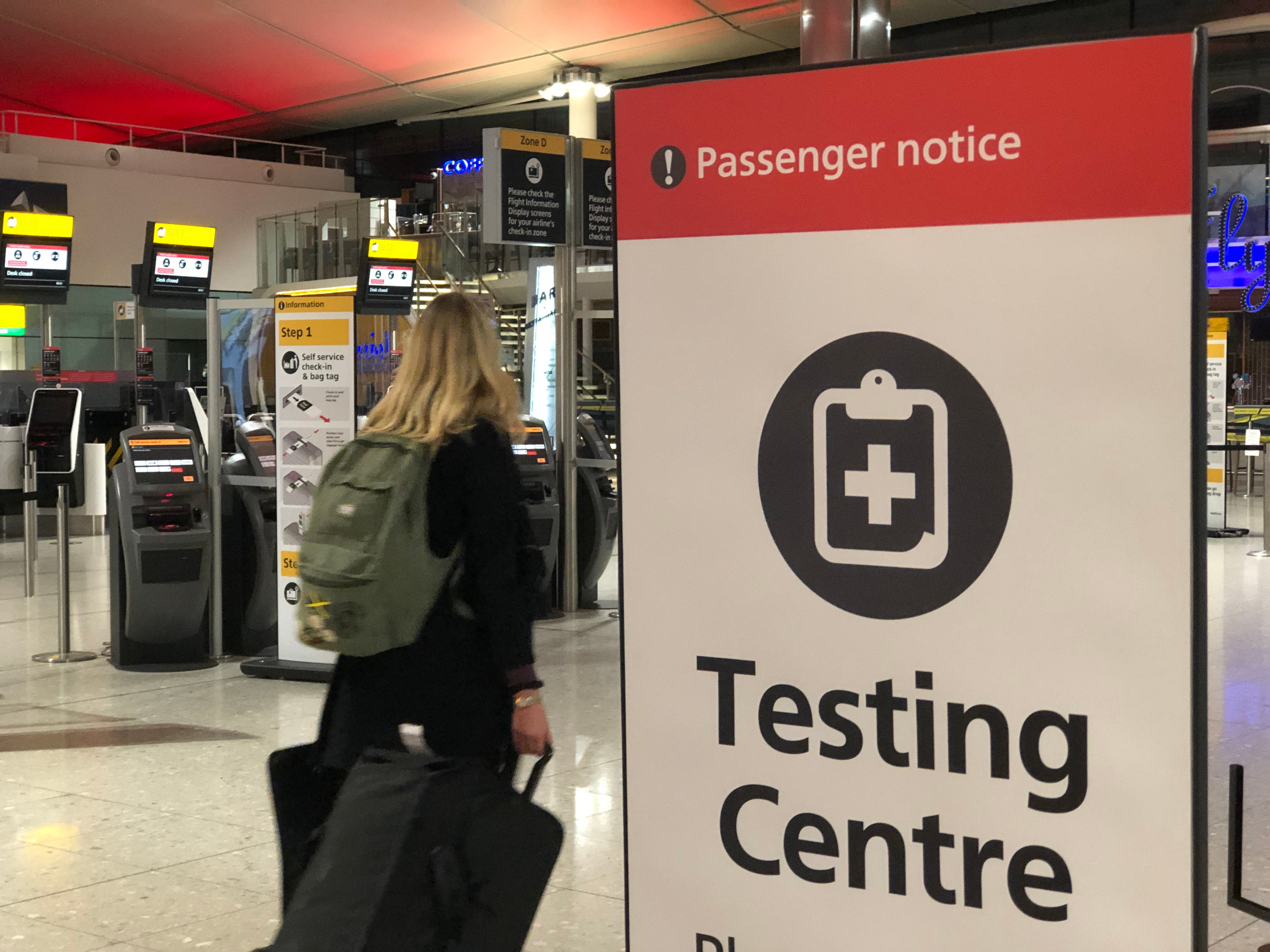Travel quarantine to be cut from two weeks to five days – with a quick test
In the New Year, quarantine could be avoided altogether with a series of seven lateral-flow tests

Your support helps us to tell the story
From reproductive rights to climate change to Big Tech, The Independent is on the ground when the story is developing. Whether it's investigating the financials of Elon Musk's pro-Trump PAC or producing our latest documentary, 'The A Word', which shines a light on the American women fighting for reproductive rights, we know how important it is to parse out the facts from the messaging.
At such a critical moment in US history, we need reporters on the ground. Your donation allows us to keep sending journalists to speak to both sides of the story.
The Independent is trusted by Americans across the entire political spectrum. And unlike many other quality news outlets, we choose not to lock Americans out of our reporting and analysis with paywalls. We believe quality journalism should be available to everyone, paid for by those who can afford it.
Your support makes all the difference.Travellers arriving into the UK will soon be able to reduce quarantine from two weeks to five days, if they test negative for coronavirus with a single rapid test.
At present arrivals from the vast majority of overseas countries must self-isolate at home for 14 days. The mandatory quarantine has been described as “a travel ban in all but name” by senior travel industry figures.
But the transport secretary, Grant Shapps, is set to announce that a new policy will take effect from a date in the first half of December – in time to benefit arrivals for Christmas.
Travellers arriving from any overseas country will still have to complete the online Passenger Locator Form.
Those arriving direct from low-risk locations on the “travel corridor” list, including some Greek, Portuguese and Spanish islands, will continue to avoid quarantine altogether. Others will need to quarantine for five days, but can then pay to take a LAMP test either at home or a testing centre.
While LAMP tests still involve a swab of the upper nose and/or throat, they are faster, easier and cheaper than the PCR tests that are standard in the NHS and specified by some other countries.
LAMP tests are less sensitive than the PCR version. They do not require complex, time-consuming and expensive thermal processing, and are much cheaper – typically half the £150 price of a standard PCR test.
Costs are likely to fall sharply as the number of tests increases – perhaps to £20-£30.
The announcement will be welcomed by the travel industry, which has been devastated by the collapse in demand due to restrictions on movements to overseas countries and returning to the UK.
Paul Charles, chief executive of the travel consultancy, The PC Agency, said: “It’s certainly progress and much better than 14 days, and will lead to more people being prepared to book a trip.”
Targeted quarantine was imposed on arrivals from China, northern Italy and other high-risk destinations early in the year, but abolished by the UK government in mid-March.
Blanket quarantine was imposed on arrivals from all foreign countries except Ireland on 8 June. Since then some nations have been placed on a “travel corridor” list, but this has changed frequently and excludes the vast majority of popular destinations for British holidaymakers.
The Independent understands that in the New Year, travellers may be able to avoid quarantine completely by agreeing to daily “lateral-flow tests” for a week – the same principle as will be applied to people who have been in contact with confirmed cases of Covid-19.
Professor Adam Finn, director of the Bristol Children's Vaccine Centre, told the BBC’s Today programme: “In the research that we’re doing, we’re realising that there are quite a few people who don’t come up positive on the lateral flow test but do have a positive PCR.
“The reason that’s possibly alright is that the positive PCRs a lot of the time don’t really represent an infectious state. They tell you that at some point a person has had the infection.
“A positive result indicates there is a lot of virus,” he told the BBC’s Today programme.
“This could be seen as a test of infectiousness, rather than infection.”
Meanwhile airlines including British Airways, American Airlines and United are running pre-flight testing programmes between the US and the UK, in a bid to demonstrate to the authorities in London and Washington that there is a safe alternative to quarantine on arrival.



Join our commenting forum
Join thought-provoking conversations, follow other Independent readers and see their replies
Comments